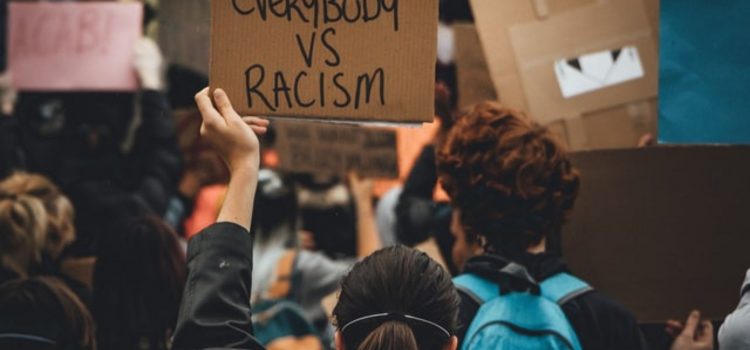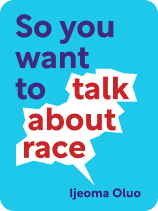

This article is an excerpt from the Shortform book guide to "So You Want to Talk About Race" by Ijeoma Oluo. Shortform has the world's best summaries and analyses of books you should be reading.
Like this article? Sign up for a free trial here .
What is implicit racism? How could you be racist implicitly, that is, without realizing it?
Implicit racism refers to unconscious beliefs, ideas, and attitudes that lead to negative preconceptions of the person on the basis of their race. Unlike explicit racism, implicit racial bias is unintentional—it is a by-product of growing up in a White Supremacist society.
Here is how we can challenge it by bringing our biases to light.
Understanding Implicit Racism
A great deal of our behavior is influenced by forces outside our normal awareness. These include implicit racial bias (subconscious prejudices that affect the way we perceive situations) and our inability to see the big picture. The latter mainly springs from ignorance about the realities of other people’s lives.
Understand Your Biases
Racism is systemic. That means that everyone who grows up in a White Supremacist society is racist in some way.
You can’t help it. It’s part of the culture that you absorbed growing up. It doesn’t mean you’re a hateful person who actively desires harm to people of color. But it does mean that racism shapes much of what you do and believe without you realizing it.
You can start to address these biases by coming to terms with the disowned pieces of your own behavior and belief systems. First, check your privilege.
Check Your Privilege
You may have been told to “check your privilege” or have heard someone else being told to do this, perhaps as part of an argument. But how exactly do you go about checking your privilege?
Here’s how:
- Start by yourself. Create a calm, neutral environment where you won’t be interrupted. Be clear about your goal: You’re doing this because you want to—because you want to understand things better and have better conversations (not because you’re in the middle of an argument and someone is forcing you to).
- Write down some of the areas of your life in which the deck has been stacked in your favor. Consider the following: physical health, mental health, disability, immigration status, class, race, home environment, family background, housing, education, gender, sexuality, conventional physical attractiveness, and anything else you can think of. If you feel tempted to list disadvantages, resist the urge. If you like, you can do this later in a separate exercise.
- For each area in which you’ve identified privilege, think about how these advantages have affected (1) your current position and (2) your understanding of this area. For example, if you’re cisgender: (1) What social, financial, and other advantages do you enjoy in relation to the transgender population? And (2) How much do you understand about the experiences of transgender people? If you’re in generally good physical health: (1) What advantages do you enjoy in comparison with people who have congenital or chronic physical conditions? (2) How much do you know about the lives of people with chronic illness?
- Search for information to fill your knowledge gaps. Read work by writers in this area, seek out talks, listen to people in your life who haven’t experienced the same privilege. If you’re in a position of privilege, you might not have it totally wrong, but you’re almost certainly missing some key parts.
Once you understand your privilege, use it to start breaking down barriers. Wherever you have privilege, use it for the benefit of those who don’t.
For example:
- If your privilege has led you to hold a position of authority, use that authority to implement programs to smooth the path for others lacking that privilege.
- If you’re the target demographic for politicians, ask them what they’re doing for people of color and other underprivileged groups.
- If you received a private education, use some of the extra money you make to support public schools.
Get into the habit of checking your privilege as often as you can. No matter how much reflecting you do, you’ll always have some unexamined privilege. Stay open to being shown your blind spots. Practice working with the feelings of defensiveness that arise when you come face to face with another area in which your privilege is getting in the way of empathy or sensitivity.
If you’re trying to bring someone’s privilege to their attention and they’re just not getting it, remember that these blind spots are by definition hidden from normal consciousness. Remember that you too have unexamined privilege, and you’ll be grateful for compassion the next time someone calls you on that.
Training yourself to see privilege is training yourself to see the system. It’s much easier to dismantle a system you can see than one you can’t.
Realize That Intentions Don’t Matter
Most likely, hurting people is the last thing you want to do. But it’s possible to hurt someone without meaning to, and unintentional injuries hurt just as much as intentional ones.
Think about the analogy in Chapter 1 of someone walking down the street and trying to defend herself against random punches from passers-by. The blow from the last wild gesture was unintentional, but it had the same ultimate effect as a deliberate blow.
You can hurt people with jokes you didn’t realize were racist or comments that you didn’t see as racially charged. If you’ve hurt someone through carelessness, fixing that injury is just as important as fixing injuries in which the damage was deliberate—and learning how not to make the same mistake in the future.
Understand Your Limits
You’re just one person. All of the experiences you’ve had in your lifetime are a tiny sliver of all possible experiences. There’s no shame in missing some pieces of the puzzle—the shame lies in not making an effort to find those missing pieces.

———End of Preview———
Like what you just read? Read the rest of the world's best book summary and analysis of Ijeoma Oluo's "So You Want to Talk About Race" at Shortform .
Here's what you'll find in our full So You Want to Talk About Race summary :
- How to have an intelligent, empathetic conversation about race
- Why people are afraid to talk about race
- Where racism came from and what fuels it






